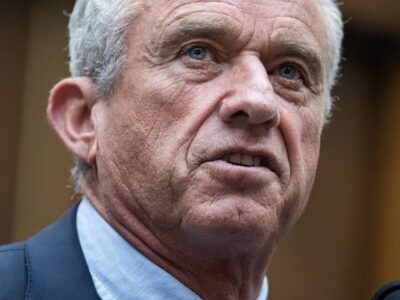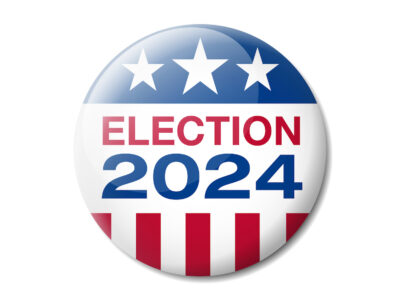If Obama’s Done Nothing for the Environment Why Do the Coal Barons Hate Him?
 I’ve had more than one conversation with Republican friends (yes, I have some) who are Romney supporters but also environmentalists. One of the arguments they trump out about why they support Romney despite their environmental interests is that “Obama’s been weak on the environment anyway.” They make this argument especially about climate change.
I’ve had more than one conversation with Republican friends (yes, I have some) who are Romney supporters but also environmentalists. One of the arguments they trump out about why they support Romney despite their environmental interests is that “Obama’s been weak on the environment anyway.” They make this argument especially about climate change.
While I share some disappointment about Obama’s failure to get Congress to pass comprehensive climate legislation, and while I wish he hadn’t backed off the tightening of federal ozone standards, it’s not a close call about who is better for the environment. I could point to many of Obama’s accomplishments — including huge support for alternative energy in the stimulus bill, the landmark deal to strengthen automobile efficiency standards and to cut carbon emissions from the transportation sector, the issuance of greenhouse gas emission standards for electric utilities and continued support for the production tax credit to support wind, solar and other alternative energy sources. But the best evidence might instead be to simply follow the money.
Greenwire this week documented the huge financial support Romney is getting from the coal industry, and not just from the Koch brothers (or at least the best known Koch brothers, David and Charles). Here are some of the big names pouring money into the Romney campaign and into anti-Obama superPACs (these coal barons call themselves the COALition for Romney): Robert Murray of Murray Energy, who has given almost $1 million to GOP candidates this election; Bill Koch (another Koch brother) of Oxbrow Corp ($2.75 million to Romney’s superPAC); Joseph Craft of Alliance Resource Partners LP ($1.25 million to Karl Rove’s PAC, $800,000 in corporate funds to Romney’s superPAC and another $500,000 of his own money to the Romney superPAC); Richard Gilliam of Cumberland Resources ($250,000 to the Romney superPAC and another $500,000 to the Rove PAC) and Kevin Crutchfield ofAlpha Natural Resources ($100,000 to Rove’s superPAC).
The obvious question is what they think they’re buying. Do you think they’re interested in getting Romney to support progressive climate policy?
Reader Comments
4 Replies to “If Obama’s Done Nothing for the Environment Why Do the Coal Barons Hate Him?”
Comments are closed.








People who think the two are equivalent should ask whether Romney would support Obama’s greenhouse gas regulations, the mercury regulations for power plants, or the current restrictions on drilling in the ANWR and the continental shelf. The answer is clearly no. And also keep in mind that recent presidents have frequently delegated to oversight of regulation to their VPs (think Gore, Quayle, and Cheney). So there’s a good chance that Ryan would end up supervising EPA.
People who think the two are equivalent should ask whether Romney would support Obama’s greenhouse gas regulations, the mercury regulations for power plants, or the current restrictions on drilling in the ANWR and the continental shelf. The answer is clearly no. And also keep in mind that recent presidents have frequently delegated to oversight of regulation to their VPs (think Gore, Quayle, and Cheney). So there’s a good chance that Ryan would end up supervising EPA.
Actually the Obama administration has shepherded the most substantial environmental regulations in any four year period, and there is no comparison. The failure of comprehensive climate policy is a huge disappointment yet our research at RFF finds the U.S. is on course to meet its Copenhagen obligations for emissions reductions by 2020 (only a portion of this is due to low natural gas prices). And for the policy wonks, the in tightening of the ozone standards was the hardest to justify from a benefit-cost perspective.
However, the net benefits from CSAPR are momentous and the MATS regulation also passes that test due to ancillary benefits of SO2 reductions. Note the MATS rule is the most expensive rule every passed by EPA (and 20 years in fruition). Most importantly, the straight forward implementation of GHG rules under the Clean Air Act may be the most important development of this generation.
Ann’s article is great. My reply is to reinforce the dissonance between how public perceptions take shape and the reality. As Ann says, this isn’t lost on everybody….follow the money.
Actually the Obama administration has shepherded the most substantial environmental regulations in any four year period, and there is no comparison. The failure of comprehensive climate policy is a huge disappointment yet our research at RFF finds the U.S. is on course to meet its Copenhagen obligations for emissions reductions by 2020 (only a portion of this is due to low natural gas prices). And for the policy wonks, the in tightening of the ozone standards was the hardest to justify from a benefit-cost perspective.
However, the net benefits from CSAPR are momentous and the MATS regulation also passes that test due to ancillary benefits of SO2 reductions. Note the MATS rule is the most expensive rule every passed by EPA (and 20 years in fruition). Most importantly, the straight forward implementation of GHG rules under the Clean Air Act may be the most important development of this generation.
Ann’s article is great. My reply is to reinforce the dissonance between how public perceptions take shape and the reality. As Ann says, this isn’t lost on everybody….follow the money.